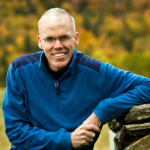Opening Keynote Speakers, Oct. 27
We’re trying a new, more dynamic format with this year’s opening ceremony. To provide a broader view of the emergent movement to create a sustainable economy, 3 leaders will each share a concise, high-impact story of their work and how higher education can contribute. With these opening keynote leaders, Varshini Prakash, our Student Summit keynote, and Bill McKibben, our closing keynote, our keynote addresses are sure to inform, inspire, and energize attendees. You won’t want to miss these featured speakers as we explore this year’s theme, “Co-Creating a Sustainable Economy.”
Shevanthi Daniel-Rabkin
The Democracy at Work Institute
 Shevanthi Daniel-Rabkin (Shev) is Director of Programs at The Democracy at Work Institute (DAWI) the think-and-do-tank that expands worker cooperatives as a strategy to address economic and racial inequality. Working to expand economic development models and practices that advance equity and broad-based employee ownership, Shev directs the strategy and growth of programs at DAWI. Her work brings together city municipalities, business advisors and capital providers to strategically advanced equity, broad-based employee ownership across large metropolitan cities around the country. Shevanthi has successfully managed and implemented large scale oriented programs in labor organizing and worker justice campaigns with SEIU1199 NW. While at the Center for Inclusive Entrepreneurship, Shevanthi launched worker cooperative management certificate program and prior to that co-founded the O’Dell Education Center, nonviolent direct action and leadership academy in Washington State. She currently serves on the board of Refugee Women’s Alliance (ReWA) and served as Board President at the Center for Women in Democracy, strengthening women’s capacity and leadership in the public and private sector. Shevanthi has an MBA in Sustainable Business from Pinchot University and dual degrees in History and Anthropology from the University of Washington.
Shevanthi Daniel-Rabkin (Shev) is Director of Programs at The Democracy at Work Institute (DAWI) the think-and-do-tank that expands worker cooperatives as a strategy to address economic and racial inequality. Working to expand economic development models and practices that advance equity and broad-based employee ownership, Shev directs the strategy and growth of programs at DAWI. Her work brings together city municipalities, business advisors and capital providers to strategically advanced equity, broad-based employee ownership across large metropolitan cities around the country. Shevanthi has successfully managed and implemented large scale oriented programs in labor organizing and worker justice campaigns with SEIU1199 NW. While at the Center for Inclusive Entrepreneurship, Shevanthi launched worker cooperative management certificate program and prior to that co-founded the O’Dell Education Center, nonviolent direct action and leadership academy in Washington State. She currently serves on the board of Refugee Women’s Alliance (ReWA) and served as Board President at the Center for Women in Democracy, strengthening women’s capacity and leadership in the public and private sector. Shevanthi has an MBA in Sustainable Business from Pinchot University and dual degrees in History and Anthropology from the University of Washington.
Aaron Tanaka
The Center for Economic Democracy
 Aaron Tanaka is a Boston-based community organizer, economic development practitioner, philanthropic adviser, and impact investor. As the co-founder and director of the Center for Economic Democracy, Aaron stewards funding and capacity building programs to social movement collaboratives that advance alternatives to capitalist economics in the US. CED is best known for its role in incubating the Boston Ujima Project, an emerging national model for the democratization of local finance capital.
Aaron Tanaka is a Boston-based community organizer, economic development practitioner, philanthropic adviser, and impact investor. As the co-founder and director of the Center for Economic Democracy, Aaron stewards funding and capacity building programs to social movement collaboratives that advance alternatives to capitalist economics in the US. CED is best known for its role in incubating the Boston Ujima Project, an emerging national model for the democratization of local finance capital.
Before co-founding CED, Aaron served as the startup manager for the Boston Impact Initiative, Boston’s first impact investment fund, directing loans and equity investment in Boston’s working-class communities of color. Between 2013-2014, Aaron was the Lead Organizer for Boston’s first-ever Participatory Budgeting process, which empowered local youth to allocate city funds. Until 2012, Aaron was co-founder and executive director of the Boston Workers Alliance (BWA), a grassroots organization nationally regarded for its statewide Ban the Box policy victory in 2010.
Aaron is a former fellow with BALLE, Echoing Green, Green For All, and Tufts Dept. of Urban Planning, and is a former Commissioner for the Commonwealth of Massachusetts under the Patrick Administration. He currently serves on the boards of the Boston Impact Initiative, Foundation for Civic Leadership, Neighborhood Funders Group and the New Economy Coalition. Aaron is also a co-founder and worker-owner of Olio Culinary Cooperative, an employee-owned catering and restaurant group. Aaron holds a BA from Harvard University and an MS in Community Economic Development from Southern New Hampshire University.
Marcus Renner
University of California, Davis
 Marcus Renner, a doctoral candidate in Geography at UC Davis, previously coordinated sustainability efforts at two different college campuses and currently coordinates UC Davis’ Community Economies Collaborative, a faculty/student reading group. With a background in environmental studies and playwriting, Marcus’ current focus is on the intersection of local economies and the arts, and how UC-Davis can facilitate the development of community economies in the surrounding region.
Marcus Renner, a doctoral candidate in Geography at UC Davis, previously coordinated sustainability efforts at two different college campuses and currently coordinates UC Davis’ Community Economies Collaborative, a faculty/student reading group. With a background in environmental studies and playwriting, Marcus’ current focus is on the intersection of local economies and the arts, and how UC-Davis can facilitate the development of community economies in the surrounding region.
Closing Keynote Speaker, Oct. 29
Bill McKibben
Author, Environmentalist, Activist
 Bill McKibben is an author and environmentalist who in 2014 was awarded the Right Livelihood Prize, sometimes called the “alternative Nobel.” His book The End of Nature (approaching 30 years in print) is regarded as the first book for a general audience about climate change and has been translated into 24 languages. TIME Magazine has called him “perhaps the planet’s best green journalist,” and he’s lectured and organized on every continent, including Antarctica. His latest book—Falter: Has the Human Game Begun to Play Itself Out?—offers a piercing look not only at our environmental challenges but at the existential questions that come with new technologies like artificial intelligence.
Bill McKibben is an author and environmentalist who in 2014 was awarded the Right Livelihood Prize, sometimes called the “alternative Nobel.” His book The End of Nature (approaching 30 years in print) is regarded as the first book for a general audience about climate change and has been translated into 24 languages. TIME Magazine has called him “perhaps the planet’s best green journalist,” and he’s lectured and organized on every continent, including Antarctica. His latest book—Falter: Has the Human Game Begun to Play Itself Out?—offers a piercing look not only at our environmental challenges but at the existential questions that come with new technologies like artificial intelligence.
In his heartfelt, hopeful talks, McKibben offers realistic approaches to saving our planet, as individuals, certainly, but also as thoughtful members of a mobilized group. When it comes to building a movement, we should consider “being a little bit less of an individual,” he says. Together, we can build “the right kind of pressure” in order to make a change, like convincing college campuses to divest from fossil fuels. Audiences will be inspired and uplifted by McKibben’s stories of people all over the world engaged in making the planet a more environmentally just, sustainable place. These talks “give people a sense that even in their deep worry—they are not alone,” he says.
McKibben’s writing has earned him numerous awards, including membership in the Literature section of the American Academy of Arts and Sciences, and the John Steinbeck prize. The Schumann Distinguished Scholar in Environmental Studies at Middlebury College and a fellow of the American Academy of Arts and Sciences, McKibben was the 2013 winner of the Gandhi Prize and the Thomas Merton Prize, and he holds honorary degrees from 18 colleges and universities.